Building for the future in Rwanda
National coach Sterling Magnell on changes and development
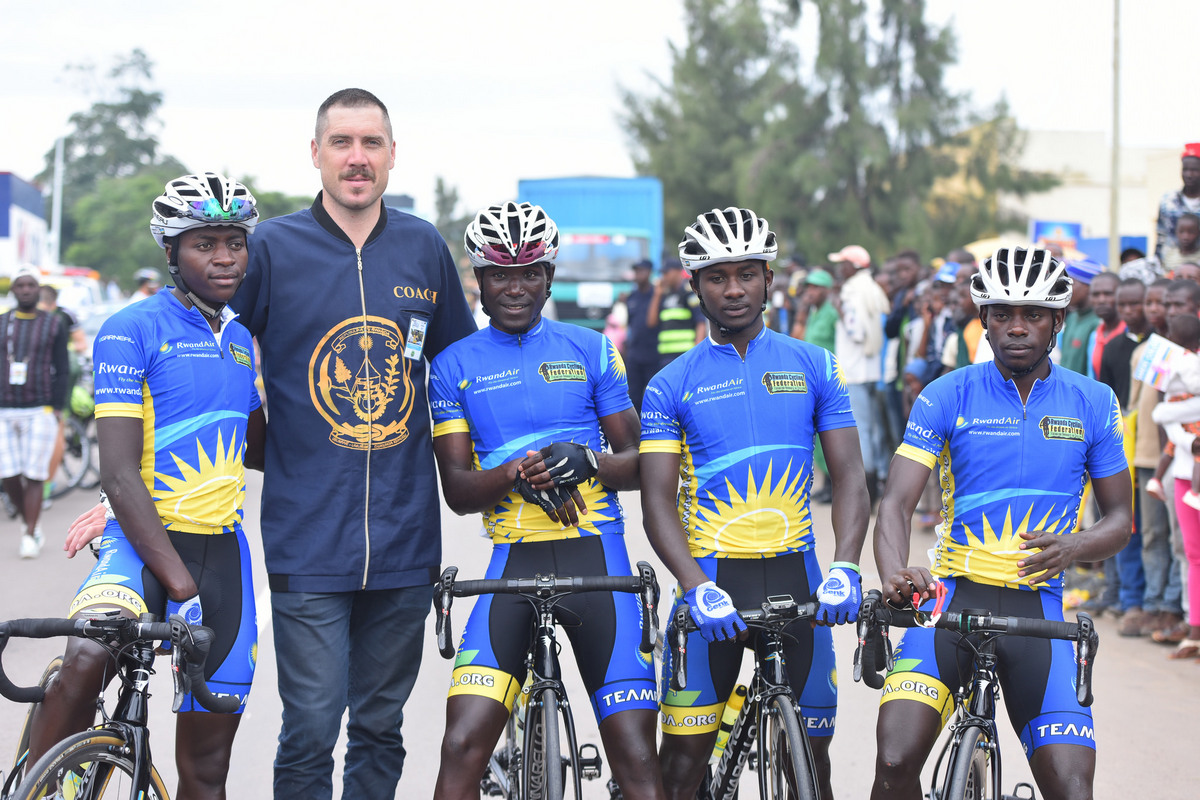
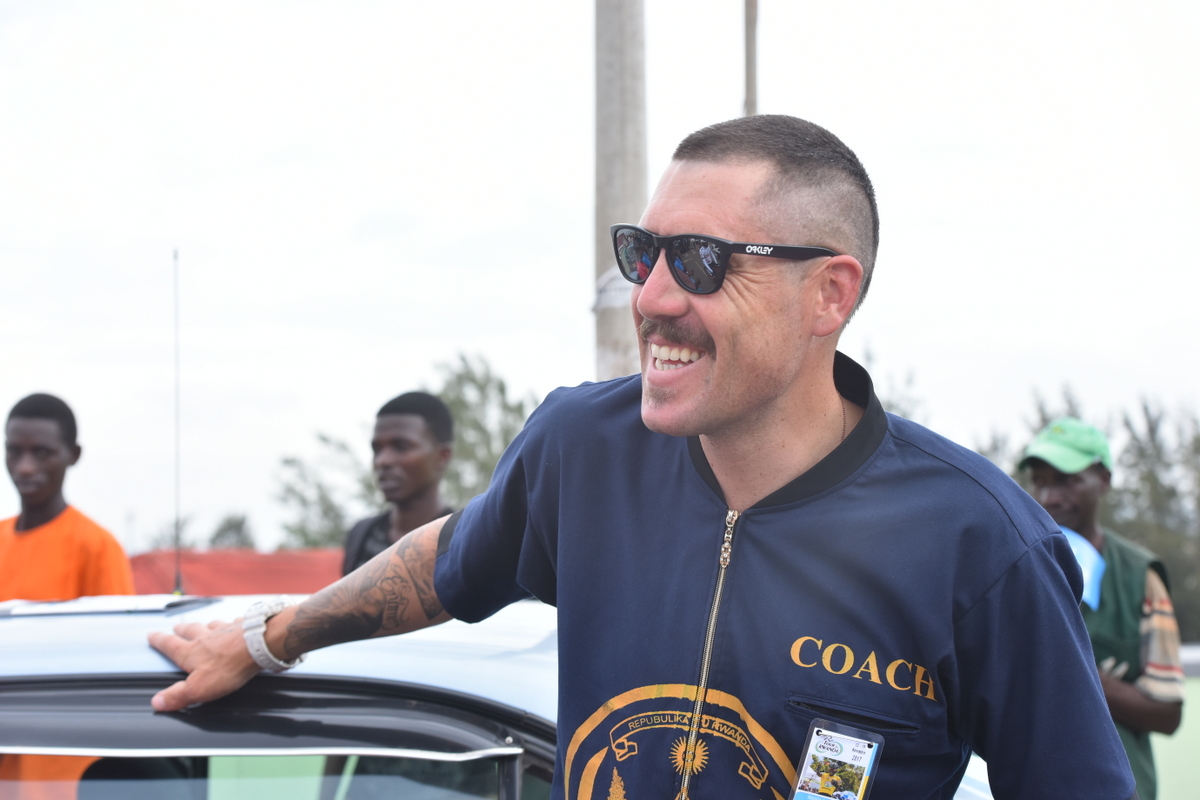
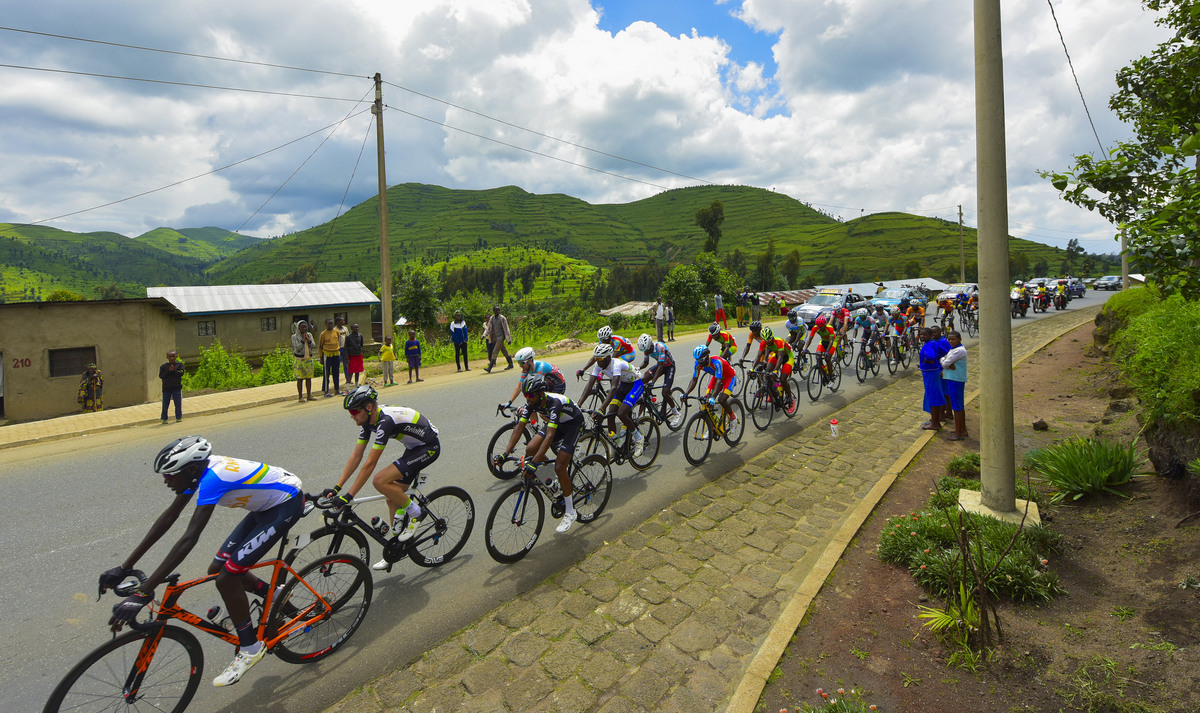
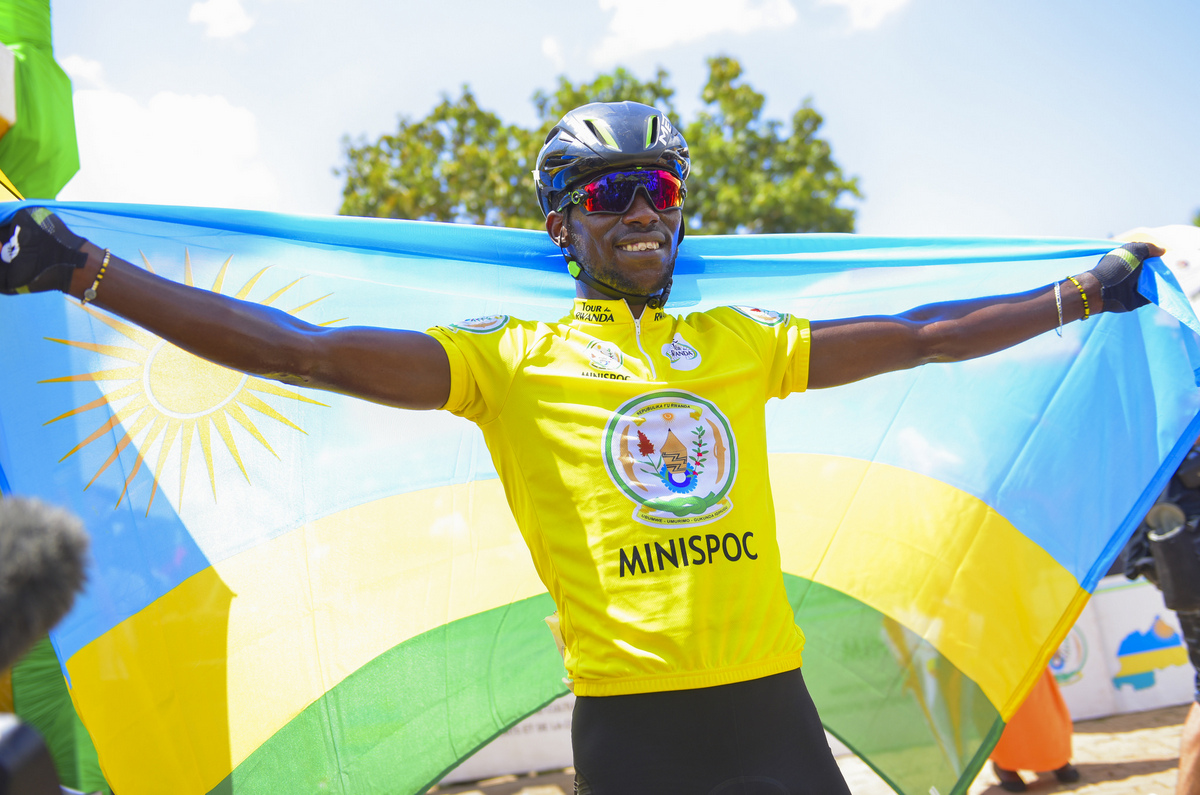
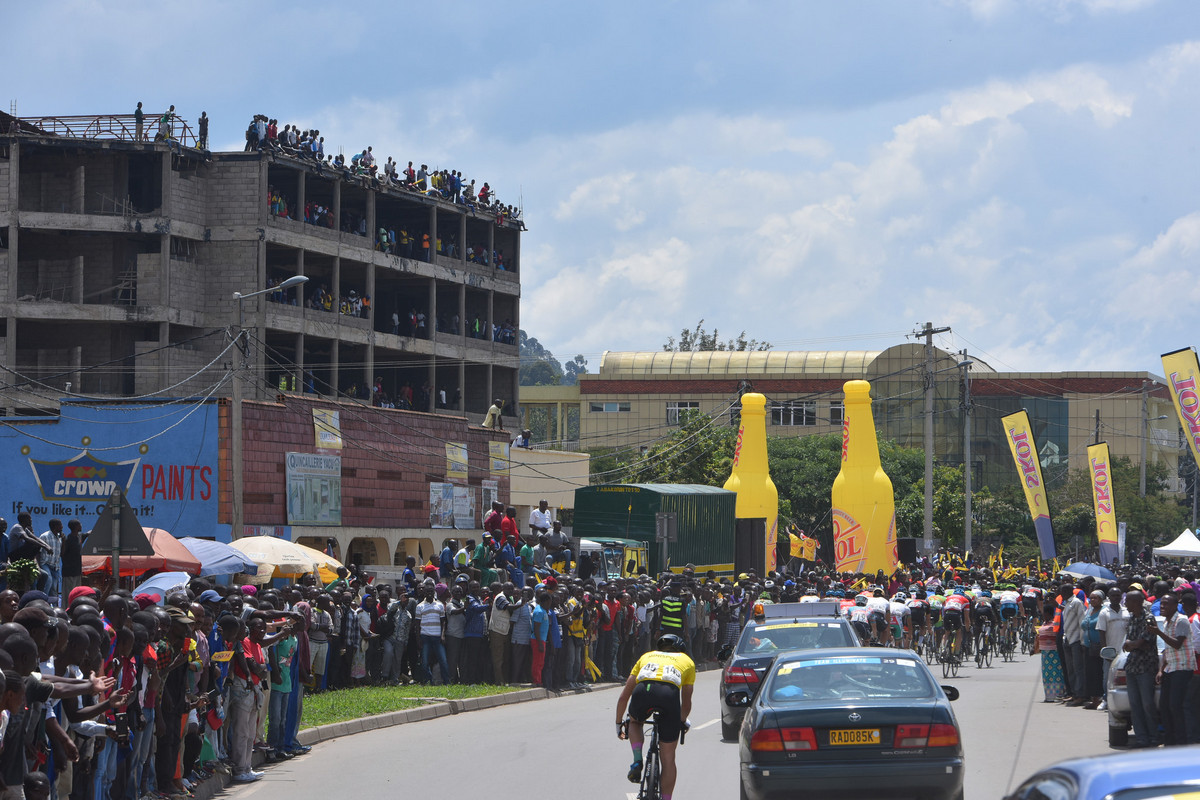
Four months into the New Year and Rwanda is enjoying unparalleled cycling success. 2017 Tour of Rwanda winner Joseph Areruya led the national team at the La Tropicale Amissa Bongo in Gabon, winning a stage and the overall. A first 2.1 UCI overall win for a Rwanda. The 22-year-old headed back to West Africa leading the team again at the nations cup l'Espoir Blue Line race where he also sealed overall victory.
Dimension Data's Adrien Niyonshuti inspiring Rwandan cycling
Tour of Rwanda draws in the crowds - Gallery
Team Rwanda set for biggest race to date in Colorado
Joseph Areruya continues home rider streak in Tour of Rwanda
Onwards and upwards for the Tour of Rwanda
Victory at l'Espoir Blue Line securing further Rwanda cycling history, sealing an invite to the Tour de l'Avenir in August. The start to the year earning Areruya a contract with the French Pro-Continental Delko Marseille Provence KTM team.
Although Rwanda missed winning any elite gold medals at February's African Championships in the capital city of Kigali, Areruya remains top of the individual UCI African Tour rankings. With over 1000 points, Rwanda sits second in the nation rankings with 18 plus races still to be run.
This isn't a story of overnight success for Rwanda cycling and but the culmination of ten plus years of tireless work that started with Tom Ritchey and Jock Boyer. Sterling Magnell has taken since taken up the mantle as national coach. Monterey, California leading the trio to Musanze, Rwanda at pivotal points in their lives to contribute to one of the more amazing stories within the sport this millennium.
A few months after Magnell was born, Boyer rode to 12th place at the Tour de France. 14 years later the duo would meet for the first time. "The world is a small place and gets real small when you ride a bike," Magnell tells Cyclingnews of their introduction. Due to a family friendship, Magnell was already acquainted with Ritchey and it was at age 12 he would receive his first bike courtesy of him. The seeds of Magnell's pro career had been sown.
Magnell's career didn't reach the heights of Boyer but the bicycle has remained a crucial building block in his life. Once Magnell hung up his wheels full time, he still races occasionally, the second chapter of his cycling career swung into gear.
"I had been retired a year or two and was miserable and not sure what to do. Jock called my dad and said, 'Ask Stirling if he wants to come over here'. I think I was like 'no' and my Dad said just think about it," he recalled. "I did some research and I knew about the programme, I knew about Jock and I thought it was cool and always wanted to visit.
Get The Leadout Newsletter
The latest race content, interviews, features, reviews and expert buying guides, direct to your inbox!
"But moving there, I was starting to put some good stuff together in my life so moving there I was like no. It took me about two months to do it. And I decided to really do it. I sold all my stuff and got my possessions down to what I could put in my mum's house. I decided I would be here for three years minimum and coming up to three years now."
Despite making a three-year promise to himself, cycling was not where Magnell saw himself in retirement.
"Coaching was the last thing I wanted to do. I did not want to be involved in the sport after retiring except for the enjoyment. I am still a racer at heart," he says. "In terms of cycling coach, I don't even like to identify with that."
The bike though is a "tool" for Magnell and "a very specific paintbrush within sport and sport is a very specific tool that society uses. There are a lot of different illustrations that you can paint but my favourite one is that sport is a very progressive way that we figured out who we are without killing each other. It is basically psychosomatic warfare." And through this philosophy is how Magnell took up his role with gusto.
In his role, Magnell is not expected to reinvent the wheel but to build on the foundations laid first in the 20th century and refined by Boyer with the national federation. With President Paul Kagame a keen backer of the sport, lifting the tariffs on bicycle imports while other imports remain high for example, Magnell can also remain somewhat free of the behind the scenes politicking.
Looking at the levers which were pulled to allow all the pieces to fall into place and cycling to prosper in the last decade, Magnell explains the work was done by Rwandans as much as the more heralded Americans. Timing also noted as a crucial ingredient.
"We didn't have the depth of strength of the Italian cycling culture that Eritrea has but the timing of the growth post-genocide, the availability of certain people and their willingness. Jock being at the timing of his life he was at when Tom Ritchey said for him to come here. The people who suggested that Tom visit. The succession of events… but the uniqueness of Rwanda is in its federation and the government's willingness to collaborate and to think outside the box, allowing a culture to develop. And to embrace the fact that Rwanda cannot only have a cycling culture but to embrace that and that it can be a hub."
That hub has become the African Cycling Center in the northern city of Musanze. The centre not only catering to the local athletes but also for African cyclists who need a well-catered training base. With football and cycling the two largest sports in Rwanda, the physical centre locates the heart and symbolises the investment made into the sport.
Necessary changes and challenges
The success of Rwanda cycling in 2018 isn't without previous hardship or lessons learned. A fundamental change in the financing of the programme, underpinning a major cultural shift.
"When I came to the team the team was still basically a core group of subsidised, if you will, athletes. They were being paid by the NGO, Team Africa Rising, to be national team members," Magnell says. "This was the only way we could have a full squad of full-time athletes, keep them going and look out for their best interests. What it became was a family and it was very tender, intimate and sweet. A very good group and energy but what it led to in my time was a sort of entitlement. If you really planned it out, you could have seen it coming. We have dealt with a few full team strikes, in events, before events... and what we had to do was to change to a more traditional model, 'this is the national team and it is a privilege. It is not a job'. It is a rewards-based system."
The changes to the national programme have included a major change in recruitment strategy. Responsibility has been placed on cycling clubs to develop, then send their athletes to the centre.
Well documented strikes by riders regarding pay have threatened the harmony of the programme at times. Janvier Hadi has only been welcomed back into the fold in the last six months having apologised for his role in a strike on the eve of the 2015 Tour of Rwanda. Magnell explains that Hadi isn't the only rider to have stepped over the line.
"I hold a really high standard, especially in character, and we have had to distance some individuals," he tells Cyclingnews. "We have rehabilitated them or given them opportunities to redeem themselves for mistakes they have made as much as we can. Even with Joseph Areruya, Sam, Bosco and Jean Claude, they made a really dire mistake at one point and we spent a lot of time doing our best to re-educate them and have them understand just what opportunity they had. In terms of the changes, it has gone from being like a family and being like, 'oh my god we are here and participating, were racing and it's amazing'. The standard that hold ourselves to, that we hold them to, has been raised so much."
While challenging, the changes have been key to the continued professionalisation that also includes the team moving beyond an NGO model to one back by the private sector. A move that hopefully provides a secure economic base and one that isn't wholly reliant on private backing.
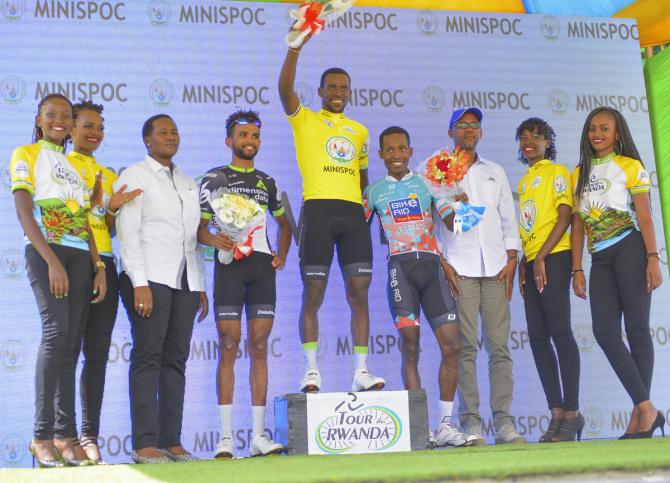
Building for the future
Although there remains the dream of creating a Rwandan Continental team, it is not the overwhelming priority for now. The focus is on growing the base of Rwandan cycling and continued professionalisation of the sport.
"It is real complicated about how you do it. There is not enough of us to go around. There are not enough professionals to have a Continental team," he says. "I think that could be a very real option in the future. My next endeavour is hoping to build a programme here around the economy and training professionals. Not just having athletes, absolutely coaching athletes, the best and most talented around Rwanda and Africa, really searching for that excellence.
"Searching for that success for them on the international stage but also delving deep into training good directeur sportifs, soigneurs, coaches and people who understand the sport and can get experience so those people who have the capability of running a Continental team. At this stage we are at, we want to produce individuals with character and talent and the ability to represent their country and be international professionals and stars in their own right. Putting athletes onto professional teams at this point, I wouldn't say it is our number one goal, but it is a big goal.
"If there was someone qualified to be a rider agent who spoke Kinyarwanda and was an ex-professional cyclist, maybe Adrien Niyonshuti can do that once he finishes racing, that is a full-time job. We all have many jobs, we are hyphens."
Magnell's vision for the future of Rwandan cycling also includes the track. Thus far in the story, mountain biking and road racing have been the predominant disciplines. That is set to change in the near future though with an all but guaranteed velodrome to be built in the country. A track programme would only serve to accelerate the growth, development and progression of the sport as Magnell explains.
"Riding a fixed gear track bike on the velodrome and doing track racing, even if it is the odd scratch or points races as a junior, is probably one of the most valuable bike handling and tactical tools to teach an athlete," he says, confirming a velodrome was approved by Kagame last year. "You can't make mistakes, you just can't. You have to learn to ride a bike and think beyond the guy in front of you, you have to think. You have to widen your scope and ride with a high cadence."
While the Musanze centre has radically changed the sport for the better, Magnell believes the velodrome will propel Rwandan cycling into a new age. The next step on the journey.
"It will be a real game changer. If we don't already have the infrastructure and programmes in place to be bringing the top African cyclists from around the continent here to train, do their craft and be educated and become better directeur sportifs, soigneurs and coaches and managers, the velodrome will just push that over the top," he says. "It is hard to imagine just how much of a mecca it could become. I don't like to get too far ahead of myself but that is one the best ideas we could have."